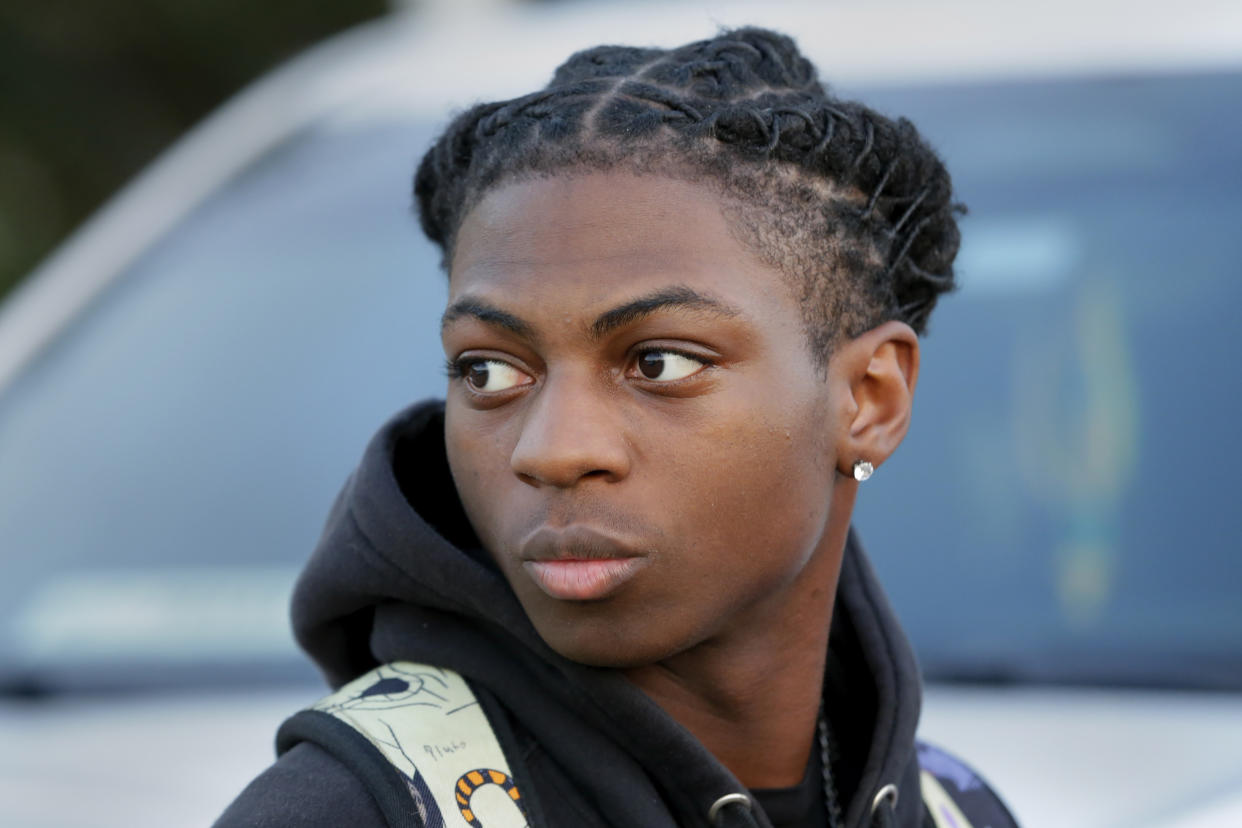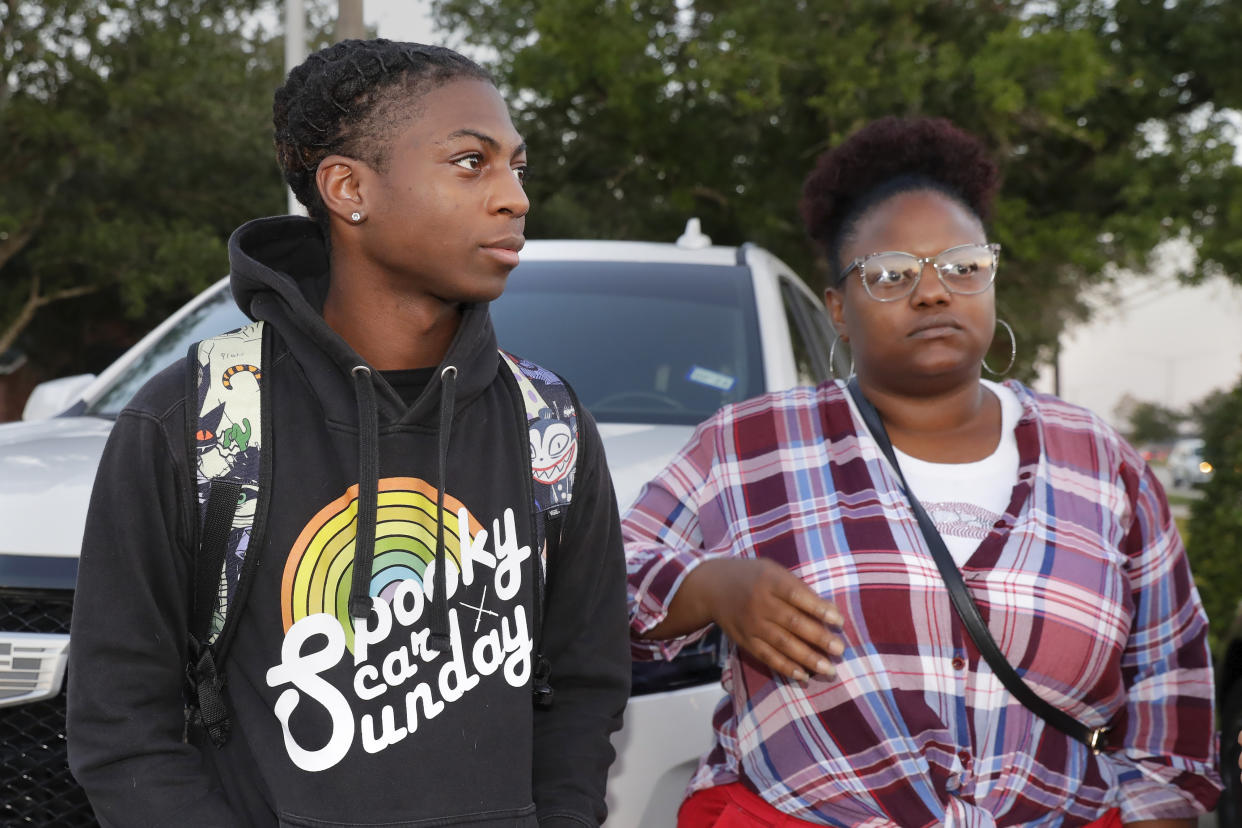The CROWN Act bans race-based hair discrimination. But some states are finding loopholes in the law.

The CROWN Act, a law created to abolish race-based hair discrimination, is legal in 24 states. But a Black teen who was suspended from school in Texas says he’s being singled out for his locs — and he’s not the only one whose hairstyle has been challenged at school or work.
What’s happened
Darryl George, an 18-year-old junior at Barbers Hill High School near Houston, has been battling the school’s administration since August after officials said he violated the dress code, which states that a boy’s hair “will not extend below the eyebrows, below the ear lobes, or below the top of a tshirt collar.”
The school claims George’s hair would violate the dress code if he wore it down, but his family says his twisted dreadlocks are always pulled back.
Since August, George has faced in-school suspension numerous times and was placed in an alternative school for over a month.
Now, his family is suing Texas Gov. Greg Abbott and Attorney General Ken Paxton, alleging they failed to enforce the CROWN Act, which went into effect in Texas in September.
William Sherman, a lawyer who researched and crafted the strategy for legislative enactment of the CROWN Act, told Yahoo News that white boys on George’s school baseball team, which follows the same dress code, have hair that violates the policy but have not been punished. (Yahoo News has reached out to Barbers Hill’s baseball team for comment.) Sherman alleges that the school’s selective enforcement of the dress code is about race.
“It seems to me that in the Texas case, this young man is being singled out because of his protective hairstyle. Not that the length is offensive to the rules, but that the style is offensive to the principal,” Sherman added.
Recent incidents of race-based hair discrimination
In January 2020, before the CROWN Act was adopted in Texas, at the same high school as George, two Black teens — DeAndre Arnold and his cousin Kaden Bradford — were suspended for the length of their locs.
In 2021, the father of then 7-year-old Jurnee Hoffmeyer, a biracial girl from Michigan, filed a federal lawsuit claiming racial discrimination against Mount Pleasant Public Schools after elementary school staff members, who were white, cut the girl’s hair without her parent’s permission. Michigan adopted the CROWN Act in June 2023.
In Georgia, Milton Myrie, a former police officer in the Atlanta area, sued the city of South Fulton in 2023 after he said he was discriminated against because of his locs. Myrie, a devout adherent of Rastafarianism — a religion where a person’s locs represent the connection to their faith — was told by the city’s police department that he had to cut off his locs to be hired. He signed on for the job and then resigned shortly after seeing Black women in his department with locs. Although Georgia has not adopted the CROWN Act, Fulton County implemented the act in 2020.
What is the CROWN Act?
The CROWN Act is defined as “a law that prohibits race-based hair discrimination, which is the denial of employment and educational opportunities because of hair texture or protective hairstyles.” A federal version of the act passed in the House of Representatives in 2022 but didn’t pass in the Senate.
Sherman explained, “In the African American community, the best hairstyles to protect the health of the hair are braids, twists, locs, etc., because you’re not using any chemicals and you’re not exposing the hair to heat.”

“The way they’re trying to enforce this policy against this young man is that it’s long when he lets it down, but he doesn’t let it down at school, obviously. This is racial discrimination,” Sherman said. “And that’s the type of discrimination that the CROWN Act was designed to prevent, to associate hair with race, as this country always has.
“If you go back in history, there are Black men and women who have been denied jobs, promotions, housing and any other accommodations because of their hair,” he emphasized.
“I knew that the law was going to be tested in this manner. That’s why we were very careful in crafting it to say that this is racial discrimination. There’s 50 years of legal jurisprudence that says you cannot discriminate against an individual based on his race.”
Here’s what’s not protected under the CROWN Act
The CROWN Act does not address length, which was purposefully left out due to circumstances where hair length could be a danger to a person, such as a job involving machinery.
Following George’s suspension for his hair, state Rep. Ron Reynolds, chair of the Texas Legislative Black Caucus, said he planned to file an amendment that “specifically addresses length to stop their pretextual argument to not comply with the Crown Act.”
Sherman advises that when you bring cases under the CROWN Act, you should not argue “culture” — shared experiences of a particular community — because it’s constantly changing. You should argue race.
“When we start arguing that, as has been said in the Texas case, ‘Well, it’s part of his culture,’ even though it’s true that it’s his culture, it’s not legally protected. But you can demonstrate through the law, through jurisprudence, that hair and race are intertwined.”
Update:
In a statement to Yahoo News, a spokesperson for the Barbers Hill school district denied the allegations in the story, including that there was any "selective enforcement of the dress code at BHHS."
"Yahoo News has chosen to print these falsehoods in an effort to smear Barbers Hill because it has chosen sides in a legal matter they clearly do not understand," he added.


